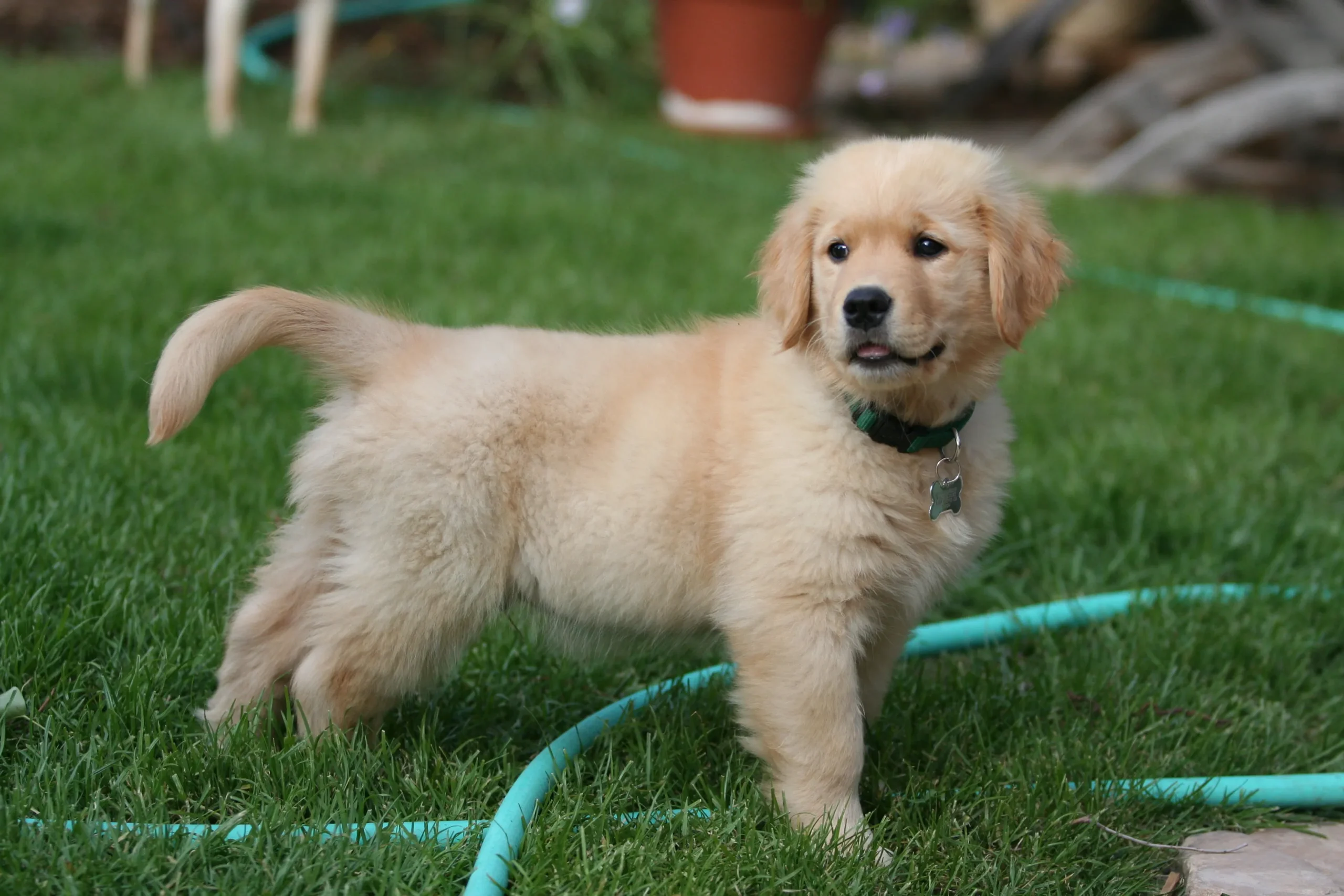Are you a proud owner of a golden retriever? If so, then you know how important it is to provide your furry friend with a healthy and balanced diet. One great way to ensure your golden retriever’s well-being is by preparing homemade meals for them. Not only can you tailor the ingredients to meet their specific dietary needs, but you also have control over the quality and freshness of the ingredients. In this article, we will explore the benefits of homemade meals for golden retrievers and provide you with some simple and nutritious recipes to try at home.
Feeding your golden retriever a homemade diet has several advantages. Firstly, you have complete control over what goes into their meals, allowing you to avoid any potential allergens or fillers that may be present in commercial dog food. Additionally, homemade meals can be tailored to meet your golden retriever’s specific nutritional requirements, taking into account their age, weight, and any health concerns they may have. By providing your furry friend with a balanced and nutritious diet, you can help them maintain a healthy weight, promote good digestion, and support their overall well-being.
The Benefits of Homemade Meals for Golden Retrievers
Feeding your golden retriever or Goldendoodle homemade meals can be a wonderful way to provide them with the nutrition they need. As a dog lover and someone who has experience working with animals, including golden retrievers, I can confidently say that there are numerous benefits to preparing meals for your furry friend at home. Let’s explore some of these benefits:
1. Control Over Ingredients: By making your dog’s meals from scratch, you have complete control over what goes into their food. This allows you to select high-quality, wholesome ingredients that are tailored to your golden retriever or Goldendoodle’s specific dietary needs.
2. Avoid Potential Allergens and Fillers: Commercial dog food often contains potential allergens and fillers that may not be ideal for your dog’s health. By preparing homemade meals, you can avoid these ingredients and ensure that your golden retriever or Goldendoodle is getting a nutritious and allergen-free diet.
3. Customization Based on Age, Weight, and Health Concerns: Every dog is unique, and their nutritional needs may vary based on factors like age, weight, and health concerns. When you make their meals at home, you have the flexibility to customize their diet accordingly. This allows you to provide your golden retriever or Goldendoodle with the optimal balance of nutrients they require.
4. Sustainable Portion Control: Obesity is a common problem among dogs, including golden retrievers. Homemade meals can help you maintain a healthy weight for your dog by allowing you to control portion sizes and ensure they are getting the right amount of food based on their activity level and metabolism.
5. Promote Good Digestion and Overall Well-being: A balanced and nutritious homemade diet can have a positive impact on your dog’s digestion. By eliminating potentially harmful ingredients and providing them with wholesome, fresh ingredients, you can support their digestive health and promote overall well-being.
Understanding the Nutritional Needs of Golden Retrievers
As a dog lover and owner of a golden retriever and a Goldendoodle, you want to ensure that your furry friends are receiving the best nutrition possible. Understanding the nutritional needs of your golden retriever is crucial in providing them with a healthy and balanced diet.
Golden retrievers are known for being active and energetic dogs. They require a diet that is rich in proteins, as it helps to build and maintain strong muscles. Incorporating lean meats, such as chicken, turkey, or fish, into their meals can provide the necessary protein they need.
In addition to proteins, golden retrievers also need carbohydrates for energy. Complex carbohydrates, such as brown rice or sweet potatoes, are a great source of sustained energy for your furry companion. Avoid processed grains or fillers, as they may contribute to weight gain and potential allergic reactions.
Fats are essential for the overall health of your golden retriever. They provide a concentrated source of energy and aid in the absorption of fat-soluble vitamins. Opt for healthy fats like salmon oil or flaxseed oil, which are packed with omega-3 fatty acids and help promote a shiny coat and healthy skin.
Vitamins and minerals play a vital role in maintaining your golden retriever’s overall well-being. Fresh fruits and vegetables are great sources of essential vitamins and minerals. Incorporating a variety of colorful fruits and vegetables into their meals can help support their immune system and improve their digestion.
It’s important to understand that the nutritional needs of your golden retriever may vary based on their age, weight, and any specific health concerns they may have. Consulting with a veterinarian or a canine nutritionist can help you create a customized meal plan that meets your dog’s individual needs.

« Discover the Unbelievable Traits That Make Golden Retrievers the Ultimate Companion Animals
Golden Retriever Lab Mix: The Ultimate Family Companion »
By understanding the nutritional needs of your golden retriever, you can ensure that they are receiving a balanced and nutritious homemade diet. Remember to provide them with fresh water at all times to keep them hydrated and healthy.
Planning Balanced and Nutritious Homemade Meals for Your Golden Retriever
As an avid dog lover and owner of both a golden retriever and a Goldendoodle, I understand the importance of providing your furry friends with the best nutrition possible. With my background in animal shelters and veterinary offices, I’ve come to appreciate the benefits of preparing homemade meals for my dogs. If you’re considering making the switch to homemade meals for your golden retriever, here are some tips to help you plan balanced and nutritious meals for your beloved pet.
1. Consult with a Veterinarian or Canine Nutritionist
Before making any changes to your dog’s diet, it’s essential to consult with a veterinarian or canine nutritionist. They can provide expert guidance based on your golden retriever’s specific needs, taking into account factors such as age, activity level, and any health conditions. Working with a professional will ensure that you’re meeting all of your dog’s nutritional requirements.
2. Choose High-Quality Ingredients
When it comes to homemade meals, the quality of ingredients matters. Opt for high-quality proteins like lean meats such as chicken, turkey, or fish. Add in wholesome carbohydrates like brown rice, sweet potatoes, and quinoa. Don’t forget to include healthy fats from sources like salmon, flaxseed, or coconut oil. Incorporate a variety of fruits and vegetables to provide essential vitamins and minerals.
3. Maintain a Proper Balance
To ensure a well-rounded diet, it’s important to achieve a proper balance of macronutrients. Aim for a ratio of approximately 50% protein, 25% carbohydrates, and 25% fats in your dog’s meals. This balance will help support their energy levels, muscle maintenance, and overall health.
4. Introduce New Ingredients Slowly
When introducing new ingredients into your dog’s diet, do so gradually. Start with small portions and monitor any changes in their digestion or behavior. This approach helps to identify any potential allergies or sensitivities and allows you to adjust accordingly.

5. Practice Portion Control
Just like with humans, portion control is key for dogs. Be mindful of your golden retriever’s portion sizes and adjust accordingly based on their activity level and weight management goals. Remember, maintaining a healthy weight is crucial for your dog’s overall well-being.
By following these tips, you can plan balanced and nutritious homemade meals for your golden retriever. Remember, a healthy diet plays a significant role in
Essential Ingredients for Homemade Golden Retriever Meals
As a dog lover who owns both a golden retriever and a Goldendoodle, I understand the importance of providing nutritious and balanced meals for our furry friends. Drawing from my experience working at animal shelters and veterinary offices, I’m here to guide you on the essential ingredients for homemade golden retriever meals.
1. Lean Proteins: Dogs are natural carnivores, so high-quality proteins should be the foundation of their meals. Opt for lean sources such as chicken, turkey, beef, or fish. Cook the meat thoroughly and remove any excess fat before serving it to your golden retriever. Remember to avoid seasoning the meat with any harmful ingredients like onions or garlic.

2. Healthy Carbohydrates: Carbohydrates provide your golden retriever with energy. Opt for whole grains like brown rice, quinoa, or oats. These are excellent sources of fiber and essential nutrients. Cook the grains until they are soft and easily digestible for your furry friend.
3. Fresh Fruits and Vegetables: Just like us, dogs benefit from the vitamins, minerals, and antioxidants found in fruits and vegetables. Include a variety of options like carrots, spinach, sweet potatoes, and blueberries in your golden retriever’s meals. Ensure that any fruits or vegetables you use are safe for dogs and cut them into small, easy-to-eat pieces.
4. Healthy Fats: Contrary to popular belief, not all fats are bad for dogs. Healthy fats, such as those found in salmon, flaxseed, and coconut oil, are essential for your golden retriever’s overall health and coat condition. Make sure to use these fats in moderation to prevent excess calorie intake.
5. Calcium: Calcium is crucial for your dog’s bone health and development. A great way to incorporate this nutrient is by adding plain yogurt or plain cottage cheese to your golden retriever’s meals. These options are rich in calcium and provide an extra dose of protein.
Remember, it’s always best to consult with a veterinarian or canine nutritionist before introducing any new ingredients or making significant changes to your golden retriever’s diet. They can provide personalized guidance and ensure that your furry friend’s nutritional needs are being met.

By incorporating these essential ingredients into your golden retriever’s homemade meals, you can ensure that they are receiving the balanced nutrition they deserve. Your furry friend will thank you with their wagging tail and happy, healthy demeanor. So,
Tips for Preparing Homemade Meals for Your Golden Retriever
As a dog lover who owns both a golden retriever and a Goldendoodle, I understand the importance of providing a well-balanced and nutritious diet for our furry friends. Drawing from my experience working at animal shelters and veterinary offices, I have gathered some helpful tips for preparing homemade meals for your golden retriever or Goldendoodle. So, let’s dive right in!
1. Consult with a veterinarian or canine nutritionist: Before you start preparing homemade meals for your beloved golden retriever or Goldendoodle, it’s crucial to consult with a veterinarian or a canine nutritionist. They will guide you in understanding your dog’s specific dietary needs and suggest appropriate ingredients and portion sizes.
2. Choose high-quality ingredients: Opt for high-quality ingredients when preparing homemade meals. Look for lean proteins like chicken, turkey, or fish, as they provide essential amino acids for muscle health. Incorporate healthy carbohydrates such as sweet potatoes or brown rice for energy. Add a variety of fresh fruits and vegetables to ensure a good intake of vitamins and minerals.
3. Maintain a balanced macronutrient ratio: Just like us, dogs require a proper balance of macronutrients. Include a mix of protein, carbohydrates, and healthy fats in your homemade meals. Aim for a ratio of approximately 50% protein, 25% carbohydrates, and 25% fats to meet your dog’s nutritional requirements.

4. Introduce new ingredients slowly: When preparing homemade meals for your furry friend, it’s essential to introduce new ingredients slowly. This will help monitor any potential allergies or digestive issues that may arise. Start by introducing one new ingredient at a time and observe your dog’s reaction before adding more variety.
5. Practice portion control: Remember to practice portion control when serving homemade meals. Golden retrievers and Goldendoodles have different calorie requirements based on age, weight, and activity level. Be mindful of portion sizes to prevent overfeeding.
Conclusion: A Healthy and Happy Golden Retriever with Homemade Meals
With the tips provided in this article, you now have the knowledge to plan balanced and nutritious homemade meals for your golden retriever or Goldendoodle. Remember, it’s important to consult with a veterinarian or canine nutritionist to ensure that you are meeting your dog’s specific dietary needs.
By choosing high-quality ingredients, maintaining a proper balance of macronutrients, introducing new ingredients slowly, and practicing portion control, you can provide your furry friend with the balanced nutrition they need for a healthy and happy life.
Homemade meals offer numerous benefits, including the ability to customize your dog’s diet and avoid potential allergens or additives found in commercial dog food. Plus, preparing meals for your dog can be a fun and rewarding experience that strengthens the bond between you and your four-legged companion.

So, go ahead and start planning those homemade meals for your golden retriever or Goldendoodle. Your furry friend will thank you with wagging tails and a lifetime of good health.








